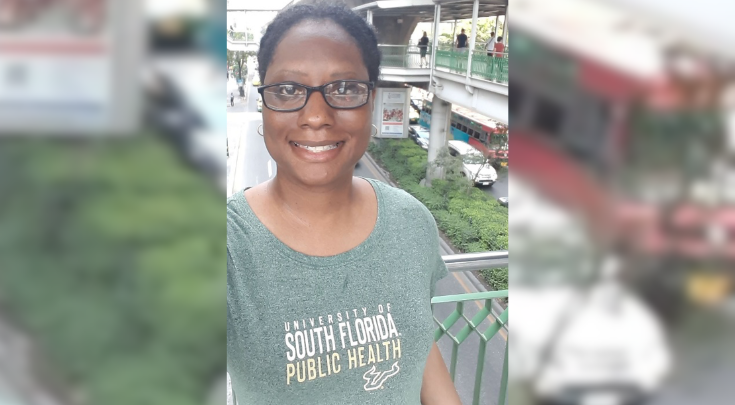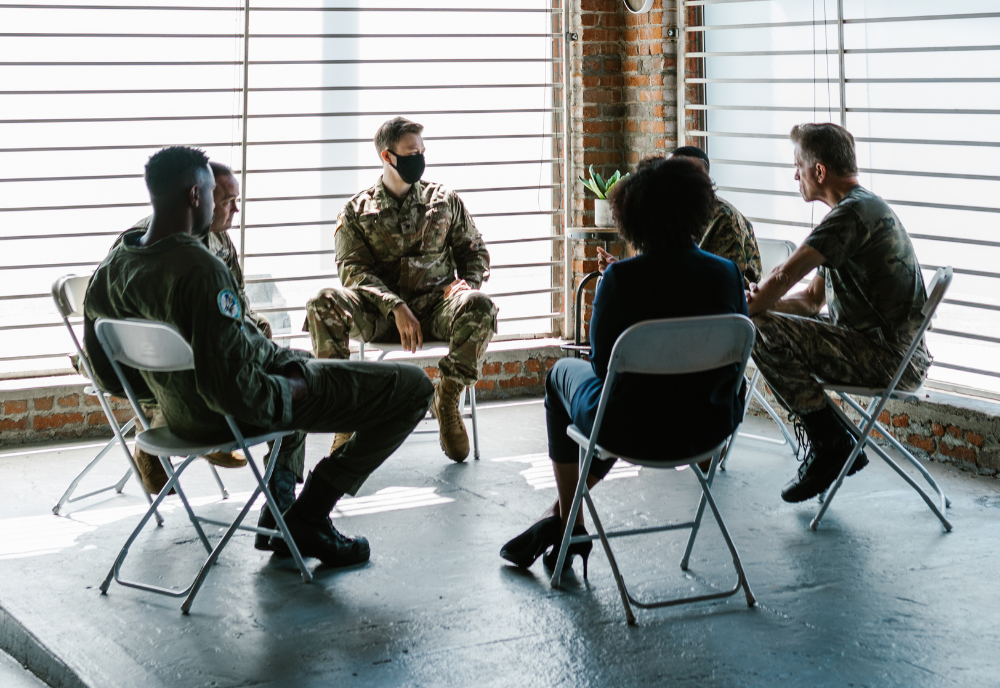June is PTSD Awareness Month
As PTSD Awareness Month draws attention to the mental health challenges faced by many, Venita Ramirez, a veteran and current doctoral student at the USF College of Public Health (COPH), shares her journey with PTSD and her dedication to aiding veterans and other vulnerable populations.
Post-traumatic stress disorder (PTSD) is a disorder that develops in some people who have experienced a shocking, scary or dangerous event. According to the National Center for PTSD, a program of the U.S. Department of Veterans Affairs, about six out of every 100 people will experience PTSD at some point in their lives. Women are more likely to develop PTSD than men. Certain aspects of the traumatic event and some biological factors (such as genes) may make some people more likely to develop PTSD.
Ramirez joined the U.S. Air Force as a public health officer in 2009 after graduating with her BS in psychology from Wesleyan College and her MPH from Mercer University School of Medicine.
During her time in the Air Force, she served in academic, research and leadership roles, primarily in public health, but also in an array of other positions. Her experience spans over 20 countries across Africa, Asia, the Caribbean, Europe, the Middle East and North America.
“My leadership roles included being a health department director, leading systems thinking and process improvement projects and overseeing non-medical base operations,” she said. “I was also an advocate for diversity and inclusion (D&I) efforts and aided with D&I program development, event organization and mentorship. Additionally, I served as an international health specialist.”

Venita Ramirez, MPH, MS, CPH (Photo courtesy of Ramirez)
It was during her last deployment in Afghanistan in 2018, while also in the first year of her DrPH in advanced practice leadership at the COPH, that she began to struggle with PTSD, anxiety and depression.
"Primarily during my last deployment, I developed physiological and mental health-related issues, some of which are still ongoing," Ramirez said. "These include struggles with anxiety, depression and PTSD."
Ramirez has found ways to manage her condition through therapy and integrative health practices such as mindfulness, healthy eating and energy work. She also finds solace in service.
"It has been therapeutic for me to be of service. I operate a small-scale dog rescue and am involved in veteran support agencies like Operation Warrior Hope, dedicated to reducing veteran suicide," she said.
During her time as a student at the COPH, Ramirez has dedicated her work to helping other veterans and praised the faculty and staff for their compassion and support.
"In addition to being smart and well-accomplished, the faculty have also proven to be compassionate and supportive to students, helping them overcome challenges and succeed in the program," she said.
Ramirez is currently working with Dr. Fionna Lewis, director of the DrPH program, as a program manager to launch the DrPH Peer Mentorship Program this upcoming fall. She also collaborates with professors Dr. Joe Bohn and Dr. Victor Weeden to organize student veteran initiatives. Her doctoral project focuses on veterans’ likelihood to seek caregivers' aid during mental health crises, aiming to extend the current literature and generate new insights for veteran-support networks.
Ramirez plans to continue her work at the COPH post-graduation, with aspirations to assist veterans and other special populations disproportionately burdened by mental health challenges.
"I aim to remain engaged in community outreach and pursue business endeavors to help agencies incorporate contemporary and integrative health into veterans’ continuum of mental health care," she said.
Ramirez also emphasized the importance of normalizing mental health conversations.
"Most people would find it absurd to deny or stigmatize the presence of a broken bone. Sadly, as a mental illness survivor, I know first-hand that this statement does not hold true regarding mental health challenges," she said. "If you or a loved one struggles with any mental health challenge, normalize the conversation and make your/their mental health and well-being a priority."
For more insights and resources on mental health and PTSD, check out the National Center for PTSD website and Operation Warrior Hope website.
